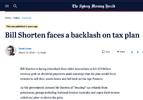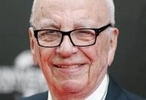- Nov 10, 2022
- 12,822
- 10,343
- AFL Club
- Hawthorn
Brad Battin quote in the herald sun
==
A Battin-led government, he explains, would also review property taxes to attract greater investment and give more Victorians a chance at nabbing their first investment property, particularly in the outer suburbs.
“When people get an increase to their tax they pass it on to the renter … the people who can least afford it,” he said.
However, scrapping land tax entirely is currently a policy that is out of the question.
“You can’t come out and say you are going to axe a tax that, at the moment, is currently holding up the budget,” he said.
==
A Battin-led government, he explains, would also review property taxes to attract greater investment and give more Victorians a chance at nabbing their first investment property, particularly in the outer suburbs.
“When people get an increase to their tax they pass it on to the renter … the people who can least afford it,” he said.
However, scrapping land tax entirely is currently a policy that is out of the question.
“You can’t come out and say you are going to axe a tax that, at the moment, is currently holding up the budget,” he said.





